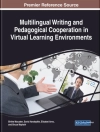Discover how you can meet the needs of the gifted and talented students in your classroom!
Students who are gifted and/or talented are known more for their contributions and potential contributions than any other group of students. Meeting the educational needs of these students, however, can be a tremendous challenge for those who teach them. In Teaching Students With Gifts and Talents, Bob Algozzine and Jim Ysseldyke offer educators helpful information for identifying gifted and talented students, and present effective instructional approaches-enrichment and acceleration-to ensure that these exceptional students are constantly challenged and engaged.
Highlights include:
- A pretest and posttest to help readers assess their understanding of giftedness and how the needs of gifted and talented students are best addressed
- Cognitive, academic, communicational, physical, and behavioral characteristics that are associated with high-ability learners
- Effective instructional approaches and activities to keep gifted and talented students motivated and reaching ever-higher levels of achievement
- Key vocabulary terms
Daftar Isi
About A Practical Approach to Special Education for Every Teacher
Acknowledgements
About the Authors
Self-Assessment I
Introduction to Teaching Students With Gifts and Talents
1.Which Students Do We Consider Gifted and/or Talented?
Federal Legislation
Varying State Definitions
Identification of Students With Gifts and Talents
2.What Characteristics Are Associated With Gifts and Talents?
Cognitive
Academic
Physical
Behavioral
Communication
3.What Should Every Teacher Know About Teaching Students With Gifts and Talents?
Enrichment Tactics
Acceleration Tactics
4.What Trends or Issues Influence How We Teach Students With Gifts and Talents?
The Evolving Concept of Giftedness
Moving Beyond Intelligence Tests
Tips for Teachers
5.Gifts and Talents in Perspective
6. What Have We Learned?
Key Points
Key Vocabulary
Self-Assessment II
Answer Key for Self-Assessments
On Your Own
Resources
Books
Journals
Organizations
References
Index
Tentang Penulis
Jim Ysseldyke, Ph.D., is Birkmaier Professor in the Department of Educational Psychology, director of the School Psychology Program, and director of the Center for Reading Research at the University of Minnesota. Widely requested as a staff developer and conference speaker, Ysseldyke brings more than 30 years of research and teaching experience to educational professionals around the globe.
As the former director of the federally funded National Center on Educational Outcomes, Ysseldyke conducted research and provided technical support that helped to boost the academic performance of students with disabilities and improve school assessment techniques nationally. Today, he continues to work to improve the education of students with disabilities.
The author of more than 300 publications on special education and school psychology, Ysseldyke is best known for his textbooks on assessment, effective instruction, issues in special education, and other cutting-edge areas of education and school psychology. With A Practical Approach to Special Education for Every Teacher, Ysseldyke seeks to equip educators with practical knowledge and methods that will help them to better engage students in exploring—and meeting—all their potentials.












